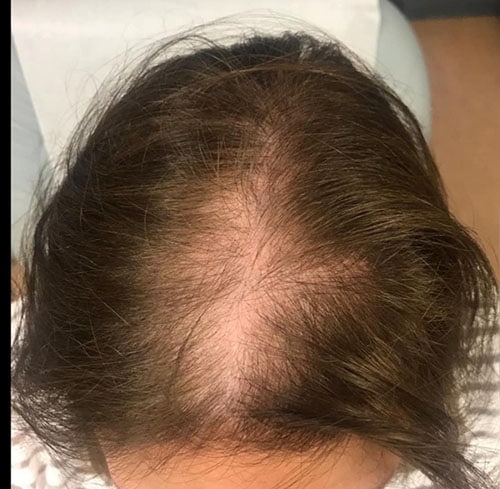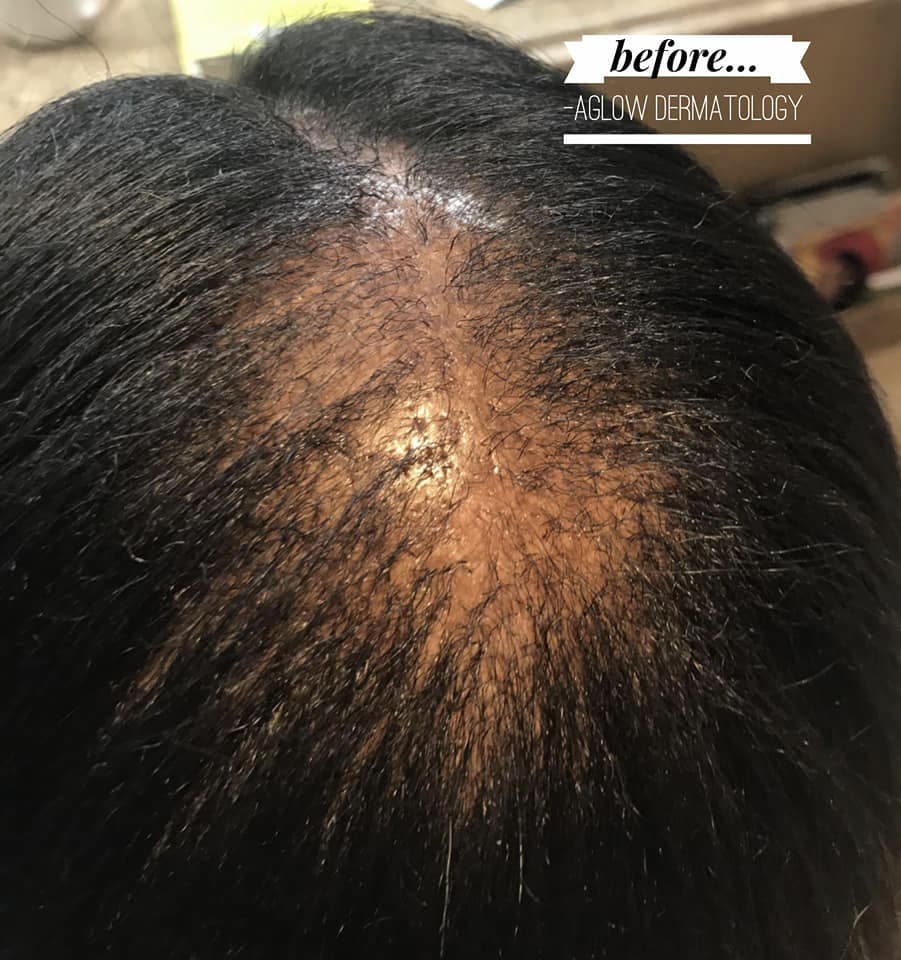One of my pet peeves when a new patient comes to me for a second opinion about hair loss is to discover that the person has been under treatment by another doctor who has not taken the step of establishing a diagnosis. Before your treat, if you’ve got hair loss, get a proper diagnosis.

Alopecia = hair loss
I realize that sometimes patients have been told a diagnosis that they did not understand—or they have forgotten. Not uncommonly, however, the patient was given a diagnosis of “alopecia.” Why this is unhelpful is that “alopecia” is a fancy word for hair loss. The patient knew this before she sought the help of a doctor. It doesn’t help explain why. It doesn’t suggest how it should be addressed. As with many things in medicine, and life, details matter.
Read next: Alma TED hair restoration
Hair loss is like a sandwich
Hair loss is like a sandwich. Most of us know that a sandwich is something usually between two pieces of bread. To just tell us that sandwiches are to be served, for example, might satisfy some. But sometimes it’s important to know what is in between the bread—or what kind of bread. Are these peanut butter sandwiches or ham and cheese? This would be important to a person with a nut allergy or who is vegan. Likewise, knowing what kind of alopecia, or hair loss, a patient has is also important. Some types have the potential to grow back—and some don’t. There are types that progress without treatment. Some alopecias tresolve without treatment. Hair loss may be associated with medications or medical conditions such as such as lupus, and thyroid problems. At times of hair loss requires a change in diet or grooming practices whereas others are unrelated to these things.
Read next: dermatologist hair loss
“Will my hair grow back?”
Hair loss is generally grouped into scarring and non-scarring types. Non-scarring alopecia has the potential to grow back because the hair follicle has not structurally been destroyed. In scarring alopecia, hair follicles are destroyed. Once a particular follicle is scarred, the loss in the area is permanent. It is important, however, to identify and stop the process which is causing the scarring to protect unaffected hair follicles from damage. Even within these two categories, there are several different more specific diagnoses.

How does a dermatologist diagnose hair loss?
Determining what type of hair loss a particular patient has requires some combination of clinical assessment, scalp biopsy, and/or laboratory testing. Unless one is dealing with an advanced case of scarring alopecia in which the process is what is described as “burnt out,” these steps provide a name to a patient’s alopecia. Biopsies tend to provide the most specific information.
Why does diagnosis matter?
Another reason knowing what kind of hair loss a patient has is important is that different types of alopecia require different treatments. There is no universal treatment for hair loss. Not uncommonly patients request to continue “scalp injections” for hair loss—when the type or cause is unknown. They are usually referring to steroid injections (corticosteroids—not the types that athletes use). These are a popular, and appropriate, treatment for hair loss caused by inflammation as steroids are anti-inflammatory. If the scarring alopecia is end-stage, however, these injection are likely to do nothing. For a person with non-inflammatory hair loss, such as telogen effluvium, a kind of hair loss not caused by inflammation, steroid injections would not be helpful.
Get a diagnosis
So, you’ve got hair loss? Don’t let your doctor get away with just telling you what you already know—you’ve got “alopecia.” A diagnosis helps identify what is causing hair loss, and allows the selection of the most effective treatment options to restore and protect hair.
Board certified dermatologists are the hair loss experts
The best type of professional to evaluate you for hair loss is a board-certified dermatologist—and particularly one which has specific expertise in this area. If you don’t have access to a hair specialist, ask your dermatologist to at least do a scalp biopsy if on clinical examination he or she can get no more specific than the diagnosis “alopecia,” which means, “hair loss,” something you already knew you had. We can’t recommend it to many times– if you’ve got hair loss, get a proper diagnosis.
Read more about hair loss!
Got androgenetic alopecia, male pattern hair loss, or female pattern hair loss? Learn about Revian Red, an FDA-approved light-based treatment and save $50 with code GROWME
Dr. Dina Strachan is an internationally recognized, Harvard and Yale educated, board-certified dermatologist, entrepreneur, consultant, speaker and best-selling author or Moxie Mindset: Secrets of Building a Profitable, Independent Physicians Practice in a Competitive Market. Learn more at www.drdinamd.com. Follower her @drdinamd



